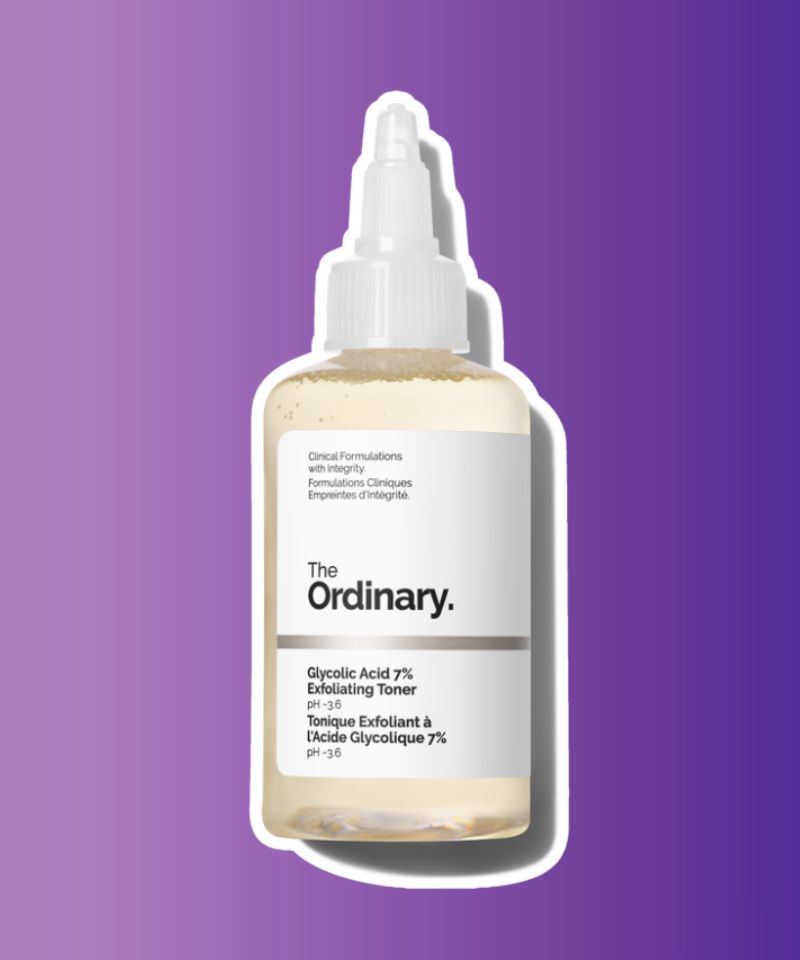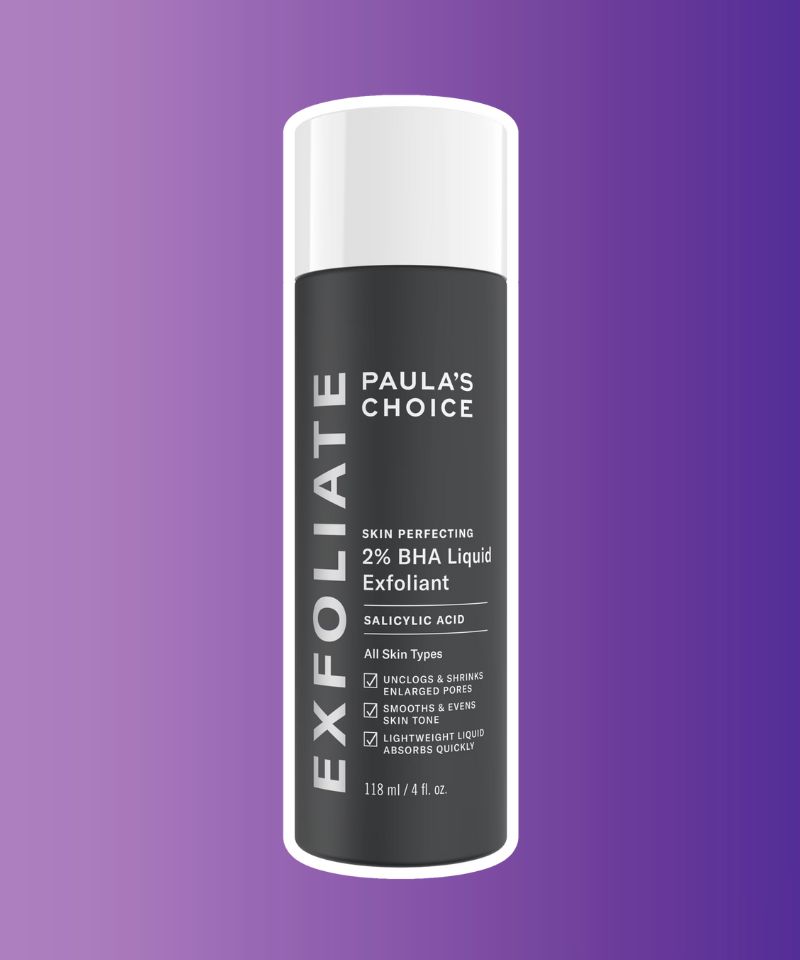Both glycolic and salicylic acids can have a transformative effect on the skin, but they serve different purposes and address different needs.
Glycolic acid, an alpha-hydroxy acid (AHA), exfoliates the skin’s surface, while salicylic acid, a beta-hydroxy acid (BHA), penetrates deeper to unclog pores and reduce inflammation..
Additionally, salicylic acid is oil-soluble, making it effective for oily and acne-prone skin, while glycolic acid works best for dry or aging skin.
By understanding some of the nuances between these two powerful ingredients, you can learn to incorporate them into your skin care routine for maximum results and improvements in the health and appearance of your skin.
Therefore, in this article, I will dive deeper into the difference between glycolic acid and salicylic acid and explain the properties, functions, benefits, possible side effects and ideal use of the two ingredients, offering information on which one may be more beneficial for various skin types and concerns.
Note: I can show you how to never have acne again. If you have acne and want it to go awayread this message.
What is glycolic acid?

Glycolic acid is an alpha-hydroxy acid (AHA) and a water-soluble ingredient derived from sugar cane.
It has a small molecular size, which means it can penetrate the skin deeper and more effectively than other water-soluble acids with larger molecular sizes, such as lactic acid.
Mainly, glycolic acid exfoliates the skin by breaking the bonds that hold dead skin cells together, which encourages them to shed, revealing brighter, younger-looking skin underneath.
The benefits of glycolic acid for the skin
The deep exfoliating action of glycolic acid leads to a myriad of benefits for the skin, including:
The possible side effects of glycolic acid
While glycolic acid is generally safe for most skin types, its powerful exfoliating action can sometimes lead to irritation, redness, and dryness, especially on sensitive skin or when used too often.
Additional, High concentrations of glycolic acid are not a suitable exfoliating option for dark skin as it can increase inflammation and worsen dark spots and uneven skin tone.
What skin type and concern is glycolic acid best for?
Glycolic acid is especially beneficial for aging skin, sun-damaged skin and those with uneven skin tone, texture irregularities and fine lines.
However, those with sensitive skin should proceed with caution and consider lower concentrations.
How to use glycolic acid?
Incorporating glycolic acid into your skincare routine should be done gradually, starting with lower concentrations and seeing how your skin reacts.
Additionally, since glycolic acid is a strong exfoliating acid, it should not be used more than 2-3 times a week.
So when you first introduce glycolic acid into your routine, start with a lower concentration and apply the product, such as a toner, serum or cream, once or twice a week in the evening.
Additionally, since glycolic acid increases the skin’s sensitivity to sunlight, applying a high SPF sunscreen during the day is crucial, even if you only use the product at night.
If your skin responds well without adverse reactions, you can increase the frequency of application.
Remember, consistency is key to seeing significant results, but overuse can lead to irritation and damage to the skin barrier.
What is salicylic acid?

Salicylic acid is a beta hydroxy acid (BHA) and an oil-soluble ingredient that can cut through the oil on the skin’s surface and penetrate deeper into pores to clear them of cellular debris.
Naturally found in willow bark, salicylic acid exfoliates the skin by breaking down the bonds between dead skin cells and dissolving excess oil, making it an effective ingredient for oily and acne-prone skin due to its ability to cleanse the bacteria that cause acne and reduce inflammation.
The benefits of salicylic acid for the skin
The main benefits of salicylic acid include:
The possible side effects of salicylic acid
Although salicylic acid is generally well tolerated, overuse or high concentrations can lead to skin dryness, flaking, and irritation, especially in sensitive or dry skin types.
Additionally, salicylic acid may not be ideal for anyone allergic to aspirin, as they may have a similar reaction to salicylic acid.
What skin type and concern is salicylic acid best for?
Salicylic acid is best suited for oily and acne-prone skin types.
Due to its ability to deep clean the pores, it is particularly effective in treating problems such as blackheads, whiteheads and other forms of acne.
How to use salicylic acid?
Incorporating salicylic acid into your skin care regimen offers a simple approach to combating the concerns of oily and acne-prone skin.
Start by applying salicylic acid once or twice a week to gauge your skin’s response.
This could be using salicylic acid in the form of a mild cleanser, spot treatment or a leave-on product such as a toner or serum, ideally applied during your nightly skincare routine.
As with glycolic acid, it’s important to monitor your skin for any signs of irritation or discomfort, especially if you have sensitive or allergy-prone skin.
Gradually, you can increase the frequency of application up to three times a week as your skin develops a tolerance to the active ingredient.
Because of salicylic acid’s ability to reduce sebum levels and potentially dry out the skin, it’s essential to pair it with moisturizers and, above all, never skip broad-spectrum sunscreen during the day, as exfoliating acids can to increase the skin’s sensitivity to UV radiation. irradiation.
Can you mix glycolic acid and salicylic acid?
While both ingredients can be effective in a skin care routine, using them together can lead to adverse effects such as dryness, redness, irritation, flaking and a compromised skin barrier.
It is recommended that you avoid mixing them completely or alternate their use to minimize the risk of side effects.

My name is Simone and I am a board certified dermatologist. I created this site to teach my readers how to take great care of their skin and I also like to occasionally share my honest opinions on skin care products I’ve tried. You can learn more about me here.
The solution for acne: Your ultimate guide to Impeccable Complexion
An extensive, no nonsense course it shows you how to never get acne againby a licensed Esthetician specializing in oily/acne-prone skin;.
